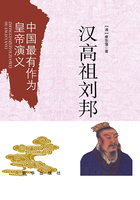Many of their opportunities had been taken away from them, as has been observed, by learned laymen.Speeches on particular saints' days, at weddings and funerals, or at the installation of a bishop, and even the introductory speech at the first mass of a clerical friend, or the address at the festival of some religious order, were all left to laymen.But at all events at the Papal court in the fifteenth century, whatever the occasion might be, the preachers were generally monks.
Under Sixtus IV, Giacomo da Volterra regularly enumerates these preachers, and criticizes them according to the rules of the art.Fedra Inghirami, famous as an orator under Julius II, had at least received holy orders and was canon at St.John Lateran; and besides him, elegant Latinists were now common enough among the prelates.In this matter, as in others, the exaggerated privileges of the profane humanists appear lessened in the sixteenth century on which point we shall presently speak more fully.
What now was the subject and general character of these speeches? The national gift of eloquence was not wanting to the Italians of the Middle Ages, and a so-called 'rhetoric' belonged from the first to the seven liberal arts; but so far as the revival of the ancient methods is concerned, this merit must be ascribed, according to Filippo Villani, to the Florentine Bruno Casini, who died of the plague in 1348.With the practical purpose of fitting his countrymen to speak with ease and effect in public, he treated, after the pattern of the ancients, invention, declamation, bearing, and gesticulation, each in its proper connection.Elsewhere too we read of an oratorical training directed solely to practical application.No accomplishment was more highly esteemed than the power of elegant improvisation in Latin.The growing study of Cicero's speeches and theoretical writings, of Quintilian and of the imperial panegyrists, the appearance of new and original treatises, the general progress of antiquarian learning, and the stores of ancient matter and thought which now could and must be drawn from, all combined to shape the character of the new eloquence.
This character nevertheless differed widely according to the individual.Many speeches breathe a spirit of true eloquence, especially those which keep to the matter treated of; of this kind is the mass of what is left to us of Pius II.The miraculous effects produced by Giannozzo Manetti point to an orator the like of whom has not been often seen.His great audiences as envoy before Nicholas V and before the Doge and Council of Venice were events not to be soon forgotten.Many orators, on the contrary, would seize the opportunity, not only to flatter the vanity of distinguished hearers, but to load their speeches with an enormous mass of antiquarian rubbish.How it was possible to endure this infliction for two and even three hours, can only be understood when we take into account the intense interest then felt in everything connected with antiquity, and the rarity and defectiveness of treatises on the subject at a time when printing was but little diffused.Such orations had at least the value which we have claimed for many of Petrarch's letters.But some speakers went too far.
Most of Filelfo's speeches are an atrocious patchwork of classical and biblical quotations, tacked on to a string of commonplaces, among which the great people he wishes to flatter are arranged under the head of the cardinal virtues, or some such category, and it is only with the greatest trouble, in his case and in that of many others, that we can extricate the few historical no- tices of any value which they really contain.The speech, for instance, of a scholar and professor of Piacenza at the reception of the Duke Galeazzo Maria, in 1467, begins with Julius Caesar, then proceeds to mix up a mass of classical quotations with a number from an allegorical work by the speaker himself, and concludes with some exceedingly indiscreet advice to the ruler.Fortunately it was late at night, and the orator had to be satisfied with handing his written panegyric to the prince.Filelfo begins a speech at a betrothal with the words: 'Aristotle, the peripatetic.' Others start with P.Cornelius Scipio, and the like, as though neither they nor their hearers could wait a moment for a quotation.At the end of the fifteenth century public taste suddenly improved, chiefly through Florentine influence, and the practice of quotation was restricted within due limits.Many works of reference were now in existence, in which the first comer could find as much as he wanted of what had hitherto been the admiration of princes and people.
As most of the speeches were written out beforehand in the study, the manuscripts served as a means of further publicity afterwards.The great extemporaneous speakers, on the other hand, were attended by shorthand writers.We must further remember that not all the orations which have come down to us were intended to be actually delivered.The panegyric, for example, of the elder Beroaldus on Lodovico il Moro was presented to him in manuscript.In fact, just as letters were written addressed to all conceivable persons and parts of the world as exercises, as formularies, or even to serve a controversial end, so there were speeches for imaginary occasions to be used as models for the reception of princes, bishops, and other dignitaries.
For oratory, as for the other arts, the death of Leo X (1521) and the sack of Rome (1527) mark the epoch of decadence.Giovio, but just escaped from the desolation of the eternal city, described, not impartially, but on the whole correctly, the causes of this decline:
'The plays of Plautus and Terence, once a school of Latin style for the educated Romans, are banished to make room for Italian comedies.














